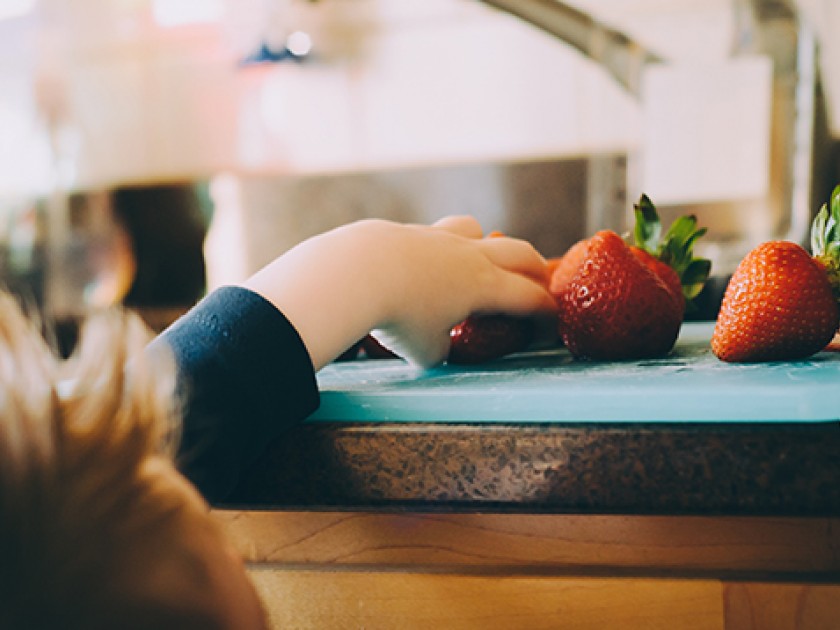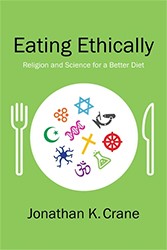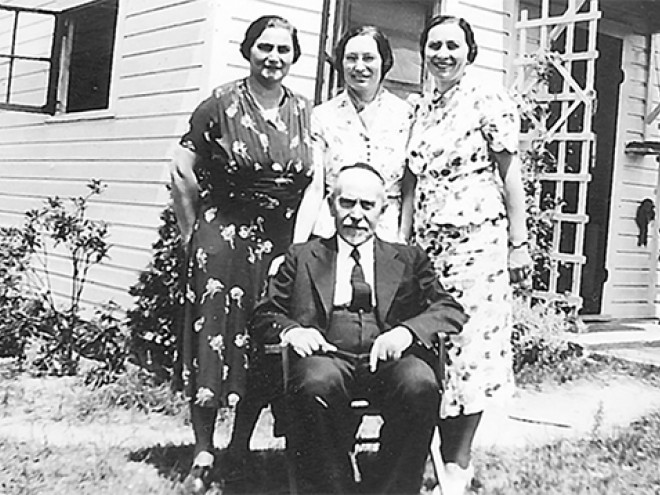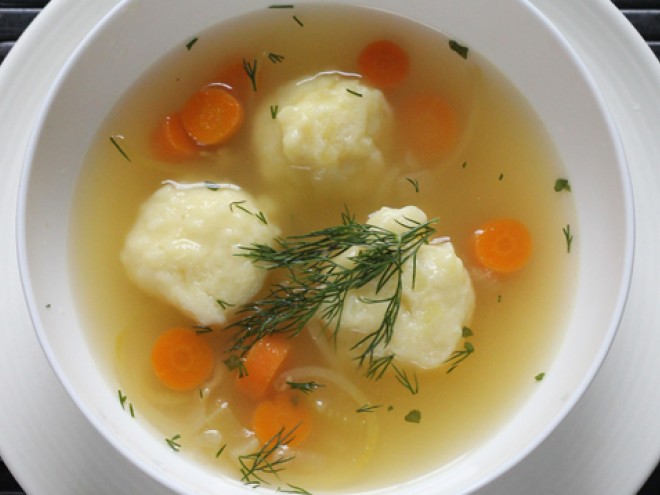
Jonathan K. Crane is the author of Eating Ethically: Religion and Science for a Better Diet. He is blogging for the Jewish Book Council as part of our Visiting Scribe series.
I vividly remember one evening when I, a ravenous teenager, sat before a heaping pile of chicken bones. For reasons now lost to legend, I had just finished some kind of fried chicken eating competition. Irrespective if it was with my two brothers or just with myself, I recall now how my stomach ached then. I had glutted my gut. And it hurt. I waddled over to the couch, flopped down, and wheezed into oblivion.
One Purim we guzzled hamantaschen. But who could blame us? Our mother’s were famous for their homemade jam filling and orange zest crust. Then there were her blintzes for Tu B’Shvat, the Pesach charosets, the dozen pies for Thanksgiving, the five flavors of homemade ice cream on the Fourth of July, and don’t get me started on the double-chocolate brownies.
I also remember the many years when my parents would take us across the Kent Valley south of Seattle to a pea patch. Hunkering down into our plot’s dark dirt, we would pluck weeds, harvest edibles, and talk about what we would can and preserve that season. Every summer we’d find a nearby alley where wild blackberries aggressively vied for dominance. Armed with thick gloves, sticks to leverage back vines, long sleeves, and buckets strung to carry around our necks, we’d pick gallons of succulent berries, a few of which we’d put in the buckets instead of our mouths. When we were especially hot from plucking strawberries off ankle-high plants or apples from an orchard in the Cascade foothills or blueberries in an island’s grove, we’d stop on the way back home for root beer floats at a local drive-through. Back in the kitchen, taking over every surface available, we’d clean, prep, and cook up a storm — jams, pickles, applesauce, whole fruits, savory and sweet sauces, breads of all sorts — laying away goods in the storeroom and freezer to enjoy in the long dreary Northwest winters.
Throughout, my mother repeated her mantra: get the best ingredients you can and do very little with them. In her view, fancy recipes often undermine both the taste and nutrition of ingredients. Simplicity allows foods to express themselves without being gussied up or disguised. This never stopped her, however, from experimenting with different cuisines. Our table fare ranged broadly and my brothers and I were obliged to at least have a “no thank you” portion of things we anticipated disliking. For eighteen years I ate at that round table in our kitchen. During those eighteen years, my parents rarely asked, “Are you full?” or imposed “Have more!” Rather, I recall them asking, “Have you had enough?” or, with a slight concerned tone and wrinkled brow: “Are you sure you’ve had enough?”
They asked this, too, of my childhood friend, Steve, every Friday evening. His Catholic family ate dinner at 5:00. Upon finishing that meal, he would wander down the street, open the kitchen door with a hearty “Good evening, Mr. and Mrs. Crane. Shabbat shalom!” and slide on into his chair next to me. He’d sing the Shabbat blessings with us, thankfully more on tune than my parents. He loved our family’s Shabbat dinner: freshly made challah with butter and jam, roasted chicken, vegetables galore, and invariably some seasonal dessert. During the years we lumbered through puberty, my mother and father asked Steve if he had had enough with deep parental joy.
While I am ever grateful my mother and father taught me how food gets from seed to sauce, how to chop onions and not my fingers, how to read recipes and navigate grocery stores, I am more thankful for their attitude toward eating itself. They impressed upon me the importance of listening to my body. Except when ill, eating nothing was not acceptable, as it would only undermine my well-being if done chronically. At the other extreme, eating too much was discouraged. Of course, there were exceptions. Sometimes my parents would ask which of us could “help out management” and eat the last few potatoes or green beans. Steve invariably volunteered, saying that his karate class was especially challenging that day. On the whole, we were to eat to satisfy our personal hungers yet never so much as to deny others access to the food. I came to realize that “family style” means more than cooking large portions; its most significant meaning is sharing and ensuring others have the opportunity to partake.
Now it’s my turn.
Now I ask my three sons to have a “no thank you” portion. I ask them to ensure that others at the table also get some of that dish. I inquire whether they have had enough.
When we visit Seattle, they cook with my mom, relishing the chance to make jams, ice creams, applesauce, and more. At home some Fridays, they bake challah with me or my wife, supervise French toast the next morning, and eagerly shuck corn. They love hosting guests and especially sharing Shabbat dinner with friends and family.
Whenever I can, I take my boys to farms, orchards, vineyards, even alleyways. Grabbing bags and baskets from the trunk, they race to see who can pick the most apples or blueberries or green beans — and of course, wild blackberries. Sometimes they even put one or two in their buckets.
Jonathan K. Crane, PhD and Rabbi, teaches Jewish ethics at Emory University’s Center for Ethics. Communities and organizations around the world invite him to speak on pressing moral issues of the day. He serves on the board of Farm Forward and the Society of Jewish Ethics. Jonathan lives in Atlanta with his wife, Lindy Miller, and their three boys.


